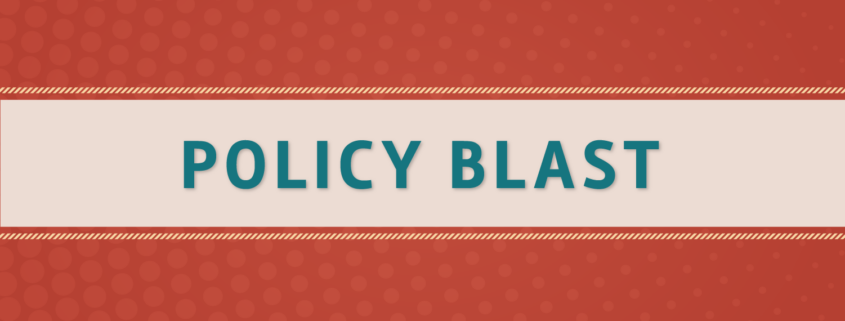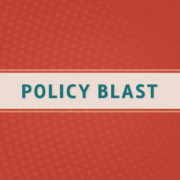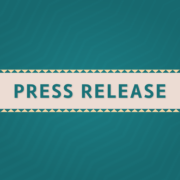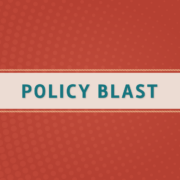NCUIH Testimony for House Hearing on Urgent Needs of Indian Country
On July 8, 2020, the House Committee on Energy and Commerce held a hearing titled “Addressing the Urgent Needs of Our Tribal Communities.” The hearing explored how COVID-19 has uniquely impacted Indian Country, exploring critical infrastructure needs, like access to broadband, electricity, and running water, as well as, the disproportionate health impact COVID-19 has had on Indian Country. The National Council of Urban Indian Health (NCUIH) submitted written testimony for the hearing.
Testimony
House Committee on Energy and Commerce – “Addressing the Urgent Needs of Our Tribal Communities” National Council of Urban Indian Health – July 8, 2020
Chairman Pallone, Ranking Member Walden, and Members of the Committee, thank you for holding this important hearing on the urgent needs of tribal members living in urban areas. On behalf of the National Council of Urban Indian Health (NCUIH), which represents 41 urban Indian organizations (UIOs) that serve American Indians and Alaska Natives (AI/ANs) at 74 facilities across the country, we thank you for your commitment to ensuring that the 70% of AI/ANs residing in urban areas have access to critical health care. We appreciate your continued efforts to ensure tribal members in urban areas are included in all relevant legislation. Thank you for allowing us to testify today and for your tireless efforts ensuring that the voices of tribal members living in urban areas are heard.
HEROES Act and Patient Protection and Affordable Care Enhancement Act
NCUIH and the UIOs we represent are grateful for this Committee’s support of American Indians and Alaska Natives in the HEROES Act (H.R. 6800). This bill included the Health Care Access for Urban Native Veterans Act (H.R. 4153) to authorize reimbursement parity for care provided to urban AI/AN Veterans. The HEROES Act also would temporarily authorize 100% Federal Medical Assistance Percentage (FMAP) for UIOs. We appreciate the Committee’s work on the H.R. 1425, the Patient Protection and Affordable Care Enhancement Act because it has the inclusion of the Urban Indian Health Parity Act (H.R. 2316), which would make 100% FMAP for UIOs permanent, creating parity across the Indian health system. This will not only help the families served by these programs, but will inject additional funding support into states – allowing them to better handle this crisis. We support the inclusion in the HEROES Act funding of $1 billion for third-party relief, however, we urge Congress to include the full amount of $1.7 billion as recommended by the coalition of national Native American organizations.
The Impact of COVID-19 on Indian Country
There is a pressing need for the health care services provided by UIOs. Urban AI/ANs experience disproportionate rates of chronic diseases and are therefore more likely to need access to health care. Urban AI/ANs are 3 times more likely to have diabetes, more than 1.5 times more likely to have been hospitalized for respiratory infections in the past, and more than 1.5 times more likely to have coronary heart disease than non-Hispanic whites. These chronic diseases have been identified by the Centers for Disease Control as risk factors for serious illness or death due to COVID-19. In addition, Urban AI/ANs are also 3 times more likely to be uninsured, are more likely to have AIDS, and are less likely to be vaccinated than Non-Hispanic Whites. Urban AI/ANs also face significant behavioral health disparities – for instance, 15.1% of urban AI/ANs report frequent mental distress as compared to 9.9% of the general public and the AI/AN youth suicide rate is 2.5 times that of the overall national average. Funds are needed to provide culturally competent care in order to address these disparities, the policy fixes below will free up additional funding which UIOs can use to provide additional services to urban AI/ANs.
Parity for UIOs
Decades of underfunding of the IHS system coupled with the recent COVID-19 pandemic have highlighted the urgency of rectifying the long-standing inequities UIOs face. UIOs do not have parity with IHS and Tribal Health Providers in many cost saving programs. UIOs already operate on thin financial margins and receive funding from a single line item, which is less than 1% of the total IHS budget. This chronic underfunding is exacerbated by UIOs inability to participate in essential cost-saving measures. UIOs are unable to be fully reimbursed for the services they provide to urban AI/ANs, they have to pay hundreds of thousands of dollars for medical malpractice insurance, and they do not receive reimbursement from the Department of Veterans Affairs (VA) for services provided to urban AI/AN Veterans. Implementing simple policy fixes including 100% FMAP, Federal Torts Claim Act (FTCA) coverage, and reimbursement for services provided to urban AI/AN veterans would be a step toward ensuring that the federal government’s Trust Responsibility to provide health care for urban AI/ANs is fulfilled.
First, when UIOs provide services they are unable to fully recover their costs because the services are not reimbursed at 100% Federal Medical Assistance Percentage (FMAP). In the IHS/Tribal Health Provider/Urban Indian Organization (I/T/U) system, only UIOs have been excluded from the 100% FMAP rate. In effect, the federal government only covers 100% of the cost of Medicaid services for AI/ANs receiving those services at an IHS or tribal facility and skirts full responsibility if an individual happens to receive the service in an urban area. 100% FMAP reimbursement has allowed IHS and Tribes to receive reimbursement at higher rates and for additional services, allowing IHS and tribal providers to reinvest the money they have saved into the Indian health system. UIOs providing services to tribal members residing in urban areas are unable to receive full FMAP reimbursement for the services they provide. This is a dereliction of the trust obligation to urban Indians and significantly reduces the rate UIOs receive from states for Medicaid services – leading to considerably less funding for UIOs as compared to their counterparts in the IHS system. The HEROES Act would temporarily authorize 100% FMAP for services at UIOs during the pandemic, however, the need for 100% FMAP is continuous and does not end when the pandemic ends. The Urban Indian Health Parity Act included in H.R. 1425, the Patient Protection and Affordable Care Enhancement Act would make 100% FMAP permanent and would ensure parity among the I/T/U system.
Second, UIOs do not have parity with the rest of the I/T/U system because they are forced to expend millions of dollars each year for malpractice insurance because they do not receive FTCA coverage like employees at IHS and tribal facilities. Extending FTCA coverage to UIOs is a simple legislative fix that has strong bipartisan support and the benefits would be significant. A single UIO may pay as much as $250,000 annually in medical malpractice insurance, funds which could instead be used to invest in better health outcomes for their communities or to prepare for public health emergencies like the one we are currently facing. By freeing up federal funding for UIOs, they would be better able to serve their communities with high-quality health care. For instance, some UIOs have reported to NCUIH that they are hesitant to hire additional providers or provide additional services as they cannot cover the costs of additional medical malpractice insurance, even as they are prepared to cover the new salaries and related costs. This directly and substantially limits the services UIOs can provide to their patients as the cost of adding providers or new services to malpractice insurance policies can be the sole prohibition to service expansion.
NCUIH urges this Committee to extend FTCA coverage to UIOs and to support the Coverage for Urban Indian Health Providers Act (H.R. 6535). The Senate recently held a legislative hearing considering S. 3650, their companion bill. This bipartisan legislation would extend FTCA coverage to UIOs and would ensure parity among the I/T/U system. Passing this legislation would enable UIOs to put the money they currently spend on malpractice insurance towards providing additional services, hiring additional staff, hiring specialists, responding to COVID-19, and providing living wages to UIO staff.
UIOs also need reimbursement parity with IHS and Tribal Health Providers when providing care to AI/AN Veterans. The rest of the I/T/U system receives reimbursement from the VA for services provided to AI/AN veterans, however, the VA does not reimburse UIOs for care provided to AI/AN Veterans living in urban areas. Most AI/AN Veterans live in urban areas and would benefit from the culturally competent care provided at UIOs. Studies have shown veterans are more likely to receive care if they can choose where that care is received – and UIOs provide the only culturally competent care available in many communities. If UIOs receive reimbursement from the VA they can provide more culturally competent services to urban AI/AN veterans. AI/ANs serve in the military at higher rates than any other group and they deserve to receive care regardless of where they choose to live. The Senate recently passed S. 886, the Indian Water Rights Settlement Extension Act, which included S. 2365, the Health Care Access for Urban Native Veterans Act of 2019. This bill would allow the Indian Health Service and the U.S. Department of Veterans Affairs to enter into agreements for the sharing of medical facilities and services with urban Indian organizations. The House companion, H.R. 4153, was included in the HEROES Act and we are grateful for your support for the HEROES Act and urban AI/AN Veterans.
Permanently Reauthorize SDPI
No one should have to choose to between paying for their insulin or paying their rent. Thankfully the Special Diabetes Program for Indians (SDPI) is ensuring access to health care. The vital services provided by the SDPI are invaluable and have proven success in decreasing diabetes prevalence in the American Indian/Alaska Native populations that are most susceptible. As our nation battles a pandemic exacerbated by diabetes, it is imperative that the SDPI be reauthorized for the long-term to ensure better outcomes for the patients and families who depend on this critical care.
The CDC has noted diabetes as one of the pre-existing conditions that increase a person’s risk for a more serious COVID-19 illness. Diabetes rates among American Indians and Alaska Natives are twice the rates of the national average, placing AI/AN communities at significantly higher risk of contracting a more severe COVID-19 infection.Congress established the SDPI to address high rates of Type-2 diabetes among American Indians and Alaska Natives. It has worked. SDPI is one of the most successful public health programs ever implemented. Because of SDPI, rates of End Stage Renal Disease and diabetic eye disease have dropped by more than half. A report from the Assistant Secretary for Preparedness and Response found that SDPI is responsible for saving Medicare $52 million per year. Despite its great success, SDPI has been flat-funded at $150 million since 2004 and has lost over a third of its buying power to medical inflation.
Right now, SDPI is set to expire on November 30, 2020. Many short-term extensions have caused significant distress for SDPI programs and have created undue challenges for our patients and community members. They have also led to the loss of providers, curtailing of health services, and delays in purchasing necessary medical equipment due to uncertainty of funding – all while Indian health care programs also battle the COVID-19 pandemic. A permanent reauthorization would ensure UIOs have the necessary funds to address diabetes and the increased risk it poses for a more serious COVID-19 illness.
Urban Indian Facilities Funding
A national investment in Indian health facilities construction funding is necessary. UIOs are unable to receive funding from the IHS Health Care Facilities Construction Priority program, the Maintenance & Improvement IHS budget line item, or participate in the agency’s Joint Venture Construction Program. As a result, UIOs have had to take out loans and collect donations in order to build and maintain health facilities for a growing population. UIOs thus have to spend millions to build, repair, and maintain their facilities—millions that could be going to increased services for their patients. Many UIOs are located in aging buildings – for example, the facility in Denver, CO is in a more than 50-year old building. Without access to facilities funding like that available to IHS and tribal facilities, UIOs must use their already limited resources on facilities. Equitable construction and facility support funding for UIOs can be accomplished by including language authorizing a new budget line item to address UIO infrastructure needs.
Not all UIOs use the Accreditation Association for Ambulatory Health Care (AAAHC) or Joint Commission, yet the Indian Health Care Improvement Act only ties facilities renovation for accreditation, not for urgently needed changes or changes related to COVID-19. A common sense change is to remove the barriers to this language to ensure UIOs can use facility funds without restrictions.
A need exists for a UIO future facilities assessment as created in IHCIA but which has not been completed. Absent this, it is nearly impossible to know the full extent of needs of one of the three components of the IHS health system – which is a failure of the federal obligation.
Include UIOs in the National Community Health Aide Program
Although UIOs are eligible for the Community Health Aide Program CHAP under the national expansion policy authorized in the Indian Health Care Improvement Act (IHCIA) and IHS official properly initiated Urban Confer with UIO in 2016, IHS changed its position in 2018 and further excluded UIOs from the consultation and confer process. IHS asserts that UIOs are excluded simply because they are not explicitly included in the statutory language of the nationalization of CHAP. UIOs are eligible for other similarly situated programs under IHCIA, including the Community Health Representative program, and Behavioral Health and Treatment Services programs. UIOs are explicitly named in the statement of purpose in IHCIA, included throughout its Subchapter 1 on increasing the number of Indians entering the health professions and to assure an adequate supply of health professionals involved in the provision of health care to Indian people. CHAP is are proven program and utilizing it to the fullest extent permissible within the entire Indian health system will increase the availability of health workers in AI/AN communities. Because the purpose of IHCIA explicitly includes UIOs, the interpretation and implementation of any policy that implements IHCIA must be read to include UIOs when they are not explicitly excluded.
Establish a UIO Confer Policy for HHS
Currently, only IHS has a legal obligation to confer with UIOs. It is imperative that the many branches and divisions within HHS and all agencies under its purview establish a formal confer process to dialogue with UIOs on policies that impact them and their AI/AN patients living in urban centers. Urban confer policies do not supplant or otherwise impact tribal consultation and the government-to-government relationship between tribes and federal agencies.
We commend IHS for the agency’s invaluable partnership and tireless efforts to disseminate resources to Tribes and UIOs as expeditiously as possible. Unfortunately, funds have been needlessly tied up for weeks – and in more than instance months – by other agencies, thereby creating unnecessary barriers to pandemic response at UIOs. Compounding on this, only IHS has a statutory requirement to confer with UIOs, which has enabled other agencies to ignore the needs of urban Indians and neglect the federal obligation to provide health care to all AI/ANs – including the more than 70% that reside in urban areas. In fact, NCUIH has been unsuccessful at facilitating dialogue between numerous federal agencies and UIO-stakeholders, despite several attempts. This is not only inconsistent with the government’s responsibility, but is contrary to sound public health policy. Agencies have been operating as if only IHS has a trust obligation to AI/ANs, and that causes an undue burden to IHS to be in all conversations regarding Indian Country in order to talk with agencies. It is imperative that UIOs have avenues for direct communication with agencies charged with overseeing the health of their AI/AN patients, especially during the present health crisis.
Include UIOs in Advisory Committees with Focus on Indian Health
When UIOs are not expressly included within statute to participate in tribal advisory workgroups or committees, they are prohibited from participating in a voting role or excluded altogether. UIO inclusion in critical advisory committees on Indian health is necessary to reflect the reality of the majority of the AI/AN population, as more than 70% of AI/ANs living in urban centers today. Without explicit inclusion of UIO representation in statute, workgroups using the Federal Advisory Committee Act (FACA) intergovernmental consultation exemption exclude UIO leaders in their charters by default. For UIO leaders to participate in advisory committees without impacting the intergovernmental exemption to FACA, Congressional action is needed.
Establish a $1.7 billion Emergency Third-Party Reimbursement Relief Fund for Indian Health Service (IHS), Tribal Programs, and Urban Indian Organizations.
By being forced to cancel much of the routine care UIOs conduct, billable services have significantly declined, eliminating or severely reducing third-party reimbursement. That source of funding is critical to maintain UIOs’ operations, facilities and staffs. It is of the utmost importance that these funds be available to UIOs and that this does not create yet another lack of parity in the IHS system.
Third-party reimbursements from Medicare, Medicaid, the Veterans Health Administration, and private insurance are integral to the fiscal stability of Urban Indian Organizations (UIOs) and to the Indian health system as a whole. Unfortunately, the COVID-19 pandemic is upending this system. As states enact shelter-in-place ordinances, require health care providers to cancel all non-emergent procedures to prepare for the COVID-19 surge, and continue social distancing guidelines, UIOs must encourage patients to stay home if they are able, reducing in-person visits and thus third-party dollars with them. The removal of all this routine care is leaving only non-billable services, eliminating the ability to seek third-party reimbursement that is critical to maintaining operations.
While UIOs are trying to transition more towards remote health service delivery mechanisms like telehealth, these services are not consistently reimbursed at the same level as in-person care. UIOs are experiencing millions in lost third-party reimbursement as a result. UIOs need the ability to access relief funds for the purpose of covering past or current COVID-19 healthcare expenses, and to compensate for shortfalls in third-party reimbursement dollars as a result of the pandemic. Because each tribe, tribal organization, and UIO’s financial situation is unique, we urge the creation of a $1.7 billion relief fund, and whereby Indian health programs can submit claims for relief funding based on their health care service needs or losses related to COVID-19.
Ensure Parity in Medicare Reimbursement for Indian Health Care Providers.
I/T/U facilities are experiencing significant economic disruption and loss of third party revenues, including Medicare billing, as a result of the COVID-19 pandemic. This crisis is exacerbated by the fact that Indian Health Care Providers are not fully reimbursed for the cost of providing Medicare covered services. Unlike other Medicare providers, Indian health care providers do not bill the AI/AN Medicare patients they serve. This means that as a general rule, Indian health care providers only receive 80 percent of reasonable charges, and are not paid the remaining 20 percent by their patients. As a result, I/T/U facilities are only being paid 80 cents on the dollar by the Medicare program compared to other providers. This legislation is needed to ensure that the United States reimburses Indian Health Care Providers in full for Medicare services they provide to AI/AN people, and to ensure that AI/AN people can seek services outside the Indian health system without having to face significant cost-sharing burdens they may not be able to afford. The United States has a federal trust responsibility to provide health care for AI/ANs, and cost-sharing requirements are inconsistent with this obligation. Medicaid exempts AI/ANs from cost-sharing, and Medicare should do the same.
Expand Telehealth Capacity Building for I/T/U
As UIOs have shifted to respond to the pandemic, telehealth and telemedicine capacity has become an essential component of health care delivery and something for which UIOs must expend considerable resources. IHS has allocated $95 million for telehealth capacity building at I/T/U facilities – but UIOs have not yet seen this funding, despite the immediate need. For instance, one facility has resorted to the purchase of old phones for patients to enable them to access telemedicine visits offsite. This funding is needed now to address these immediate concerns in the middle of the crisis and to prepare for the additional waves of the virus in the immediate future, as public health officials predict.
Advanced Appropriations
When limited UIO funding is delayed or cut off during events such as a government shutdown, there are devastating effects upon a UIOs ability to provide health care. IHS and funded programs must receive advance appropriations. To illustrate, UIOs are so chronically underfunded that during the 2018-2019 shutdown, several UIOs had to reduce services, lose staff or close their doors entirely, forcing them to leave their patients without adequate care. In a UIO shutdown survey, 5 out of 13 UIOs indicated that they could only maintain normal operations for 30 days. For instance, Native American Lifelines of Baltimore is a small clinic that received three overdose patients during the last shutdown, two of which were fatal. IHS gives them just less than $1,000 total for mental health services for both facilities. To say the funding is inadequate is an understatement.
Conclusion
The House Committee on Energy and Commerce has long been a proponent of health care for urban AI/ANs. We appreciate your support for urban AI/ANs in the HEROES Act as well as in the Patient Protection and Affordable Care Enhancement Act. Too often, tribal members living in urban areas are forgotten and left behind, this Committee is working to ensure that the Trust responsibility to urban AI/ANs is upheld. Thank you for inviting us to testify and for your continued support of health care for urban AI/ANs.








Leave a Reply
Want to join the discussion?Feel free to contribute!